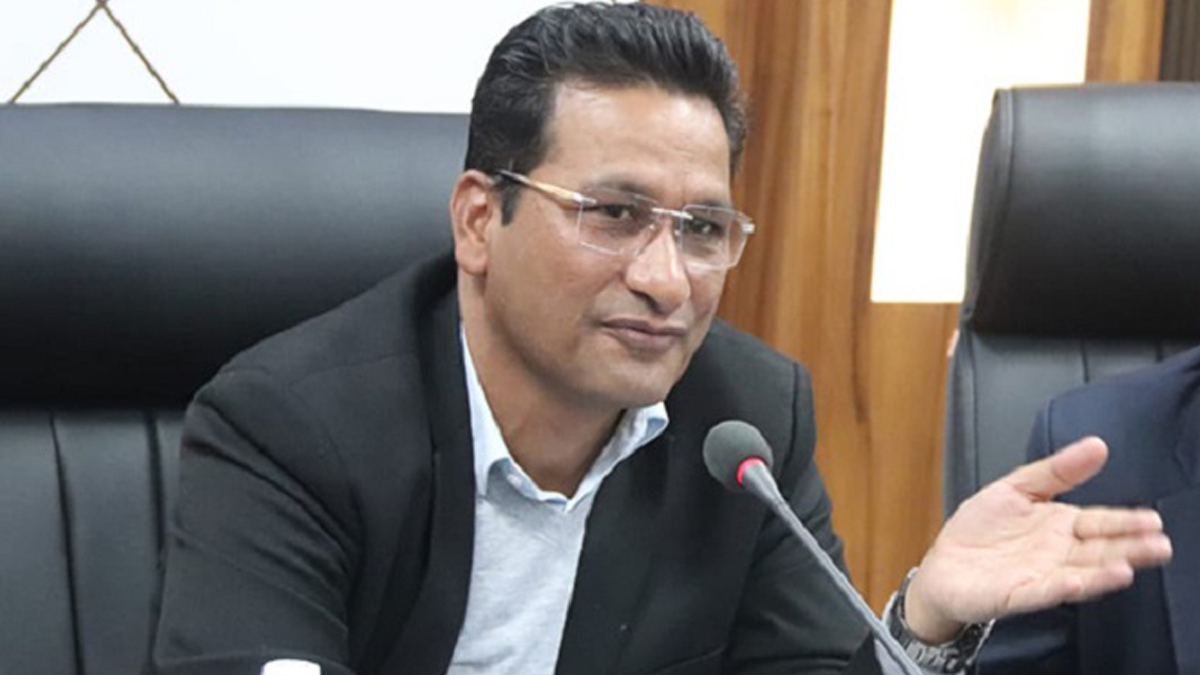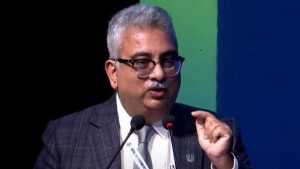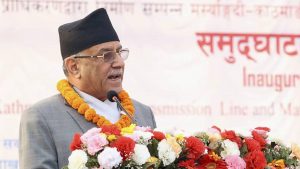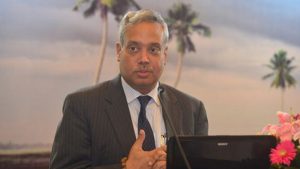
Minister Basnet calls for citizens’ increased access to early warning system

Minister for Energy, Water Resources, and Irrigation, Shakti Bahadur Basnet, has emphasized the need for increased citizen access to an early warning system. Inaugurating a ‘National-Level Learning Sharing Workshop on Early Warning System’ organized by the Department of Hydrology and Meteorology in collaboration with the Institute of Himalayan Risk Reduction, the Minister stressed that everyone should have access to the early warning system. The event is supported by USAID. Developing countries like Nepal play a minimal role in climate change. We face a growing risk of climate change due to the contributions of rich and industrialized nations to carbon emissions, according to the Minister. He stated that the impact of climate change has led to a rise in incidents of water-induced disasters such as floods and landslides. He utilized the forum to urge finding substantive ways to mitigate and address these issues.
The Minister emphasized the need to assess the impacts of monsoon-related activities, forecast potential risks, and focus on safety management. He believed that increased access to the early warning system by the public would help mitigate potential damages from disasters like landslides and floods. Minister Basnet remarked, “Hundreds of people lose their lives and significant physical property gets damaged every year due to disaster incidents, floods, and landslides.” He added that possible losses could be reduced if the early warning system were made systematic and accessible to all. He expressed his belief that a new dimension would be added, making the early warning system more effective in the coming days. The Minister mentioned that Nepal should prioritize climate adaptation programs over disaster reduction programs to reduce the risk of climate change.
Saying monsoon-related disasters might affect the country’s economic system, Secretary at the Ministry of Water Resources and Irrigation, Sushil Chandra Tiwari, clarified that the role of the early warning system is crucial in lessening losses. “Problems surface every year due to natural disasters, including floods and landslides. Different sectors, including infrastructure, tourism, agriculture, and biodiversity, have been affected, along with significant loss of lives and property,” he stressed. Possible damages could be lessened if early information related to monsoon-related incidents could be dispatched on time, Tiwari added.
Similarly, Director-General at the Department of Hydrology and Meteorology, Dr. Jagadishwor Karmacharya, pointed out that an early warning system was necessary to effectively reduce disaster-related incidents. He emphasized that the Ministry would move ahead in collaboration with all stakeholders to benefit the general public from the early information system.
Likewise, the Executive Chief of the National Disaster Risk Reduction and Management Authority, Anil Pokharel, shared that preparations were underway to formulate a concrete plan to reduce losses as the country’s economy was affected due to damage to hydropower and infrastructure by floods in the recent period. It was necessary to proceed with developing an early warning system in other areas where there is a higher risk of monsoon-related incidents, and discussions were underway with concerned bodies on this matter.














Comments